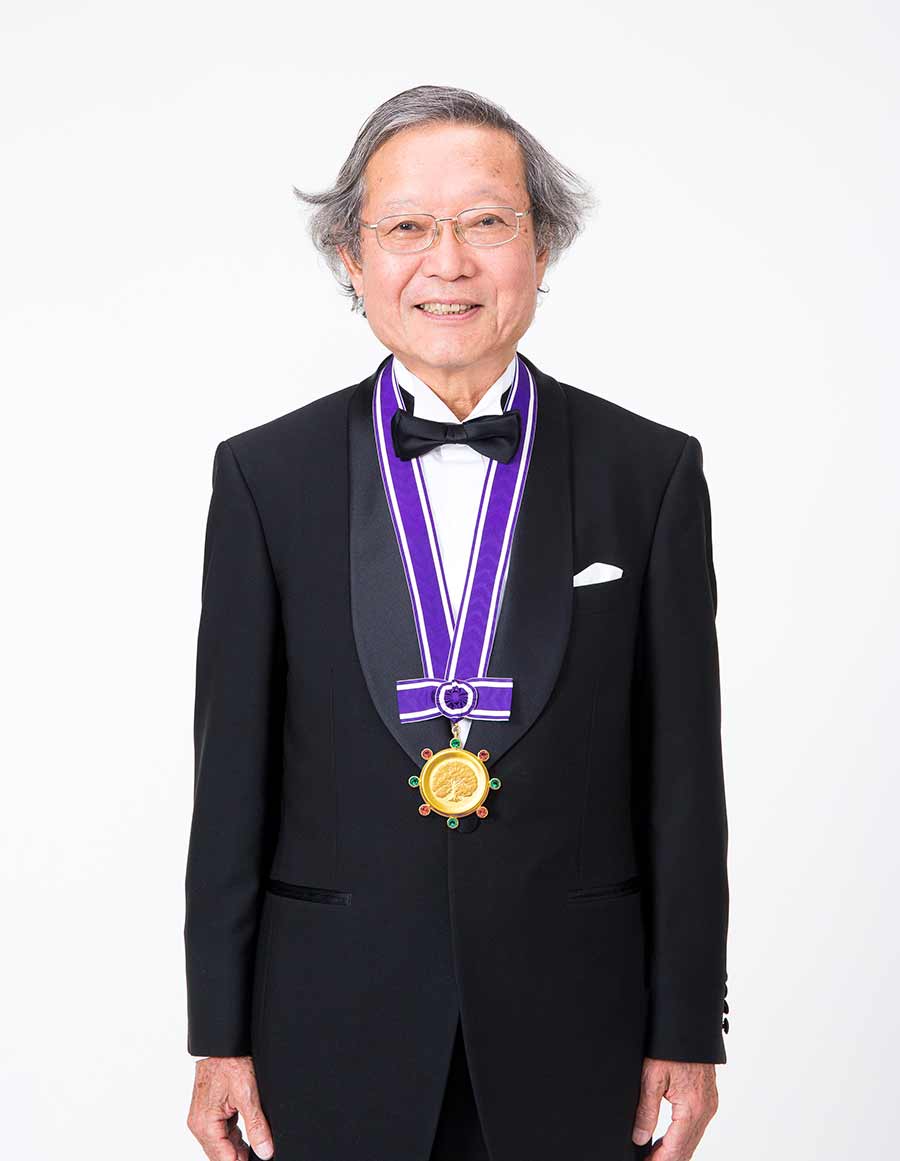
By:
- Jade Griffin
Published Date
By:
- Jade Griffin
Share This:
Kyoto Prize Symposium Returns March 20 with Famed Mathematician
Featuring a talk from renowned mathematician Masaki Kashiwara, the event is free and open to the public

Masaki Kashiwara
The University of California San Diego will host a special delegation of international visitors on March 20, as part of the Kyoto Prize Symposium. The annual event—co-hosted by UC San Diego, San Diego State University, the University of San Diego and Point Loma Nazarene University—features talks from recipients of the prestigious Kyoto Prize, Japan’s highest honor for global visionaries who made scientific and cultural advancements that benefit mankind.
World-renowned mathematician and 2018 Kyoto Prize laureate Masaki Kashiwara will speak at UC San Diego at 2 p.m., on Wednesday, March 20. To attend the free talk, which is open to the public, please visit kyotoprize-us.org.
Established by the Inamori Foundation in 1985, the Kyoto Prize strives to honor significant contributions to the scientific, cultural and spiritual betterment of humankind. The president of this nonprofit organization is Kazuo Inamori, founder and chairman emeritus (retired) of Kyocera and KDDI Corporation.
“UC San Diego is honored to co-host the annual Kyoto Prize Symposium once again,” said Chancellor Pradeep K. Khosla. “This international symposium is a special event that forges important international connections and brings to the San Diego region some of the world’s top leaders in scientific progress and cultural advancement.”
Kashiwara received the Kyoto Prize in the area of “Basic Sciences” for his pivotal contributions to mathematics. A project professor at the Research Institute for Mathematical Sciences at Kyoto University, Kashiwara established the theory of D-modules, thereby playing a significant role in the creation and development of algebraic analysis.
His numerous achievements—including the establishment of the Riemann-Hilbert correspondence, its application to representation theory, and construction of crystal basis theory—have exerted great influence on various fields of mathematics and contributed strongly to their development.
The Kyoto Prize Symposium is open to all students, staff and faculty, as well as local community members. Kashiwara’s presentation is one in the three-part Kyoto Prize Symposium hosted jointly by UC San Diego with the University of San Diego, San Diego State University and Point Loma Nazarene University. In addition to Kashiwara, this year’s Kyoto Prize laureates include:
- In “Advanced Technology,” Karl Deisseroth, whose research on microbial light-activated proteins and “optogenetics”—a new methodological discipline in which neurons can be activated or inhibited on the millisecond scale using light, has revolutionized the field of systems neuroscience. He will speak at San Diego State University on March 20 at 10 a.m.
- In “Arts and Philosophy,” Joan Jonas, who created a new artistic form by integrating performance art and video art, and has evolved her original medium at the forefront of contemporary art continuously. She will present at the University of San Diego on March 21 at 10:30 a.m.
The March 20 talk with Kashiwara will take place in UC San Diego’s Price Center West Ballroom from 3:30 to 5 p.m. The presentation will be followed by a reception with light refreshments, providing an opportunity for attendees to meet Kashiwara. For more information and to register for the free symposium, please visit kyotoprize-us.org.
Share This:
You May Also Like
Stay in the Know
Keep up with all the latest from UC San Diego. Subscribe to the newsletter today.


